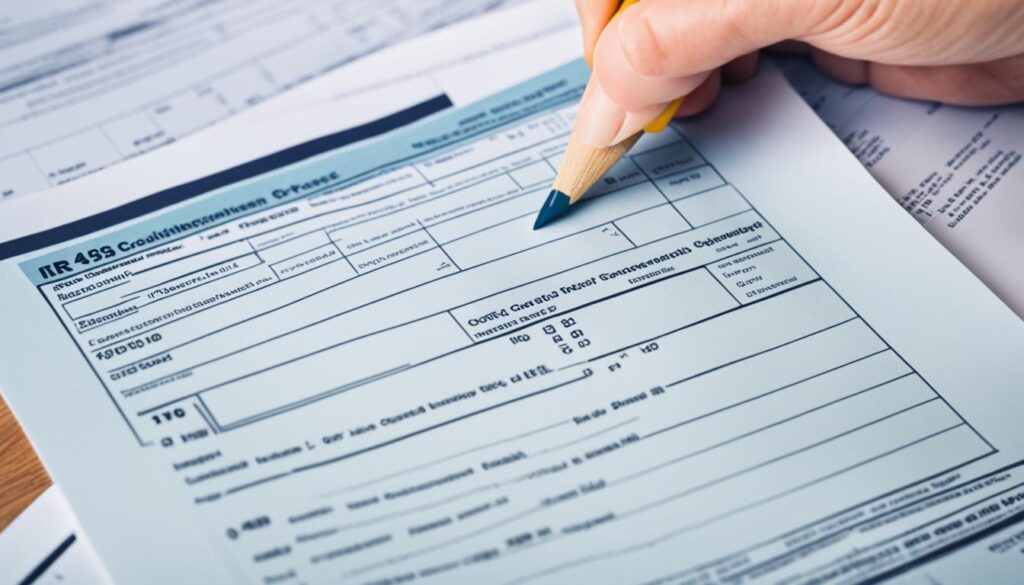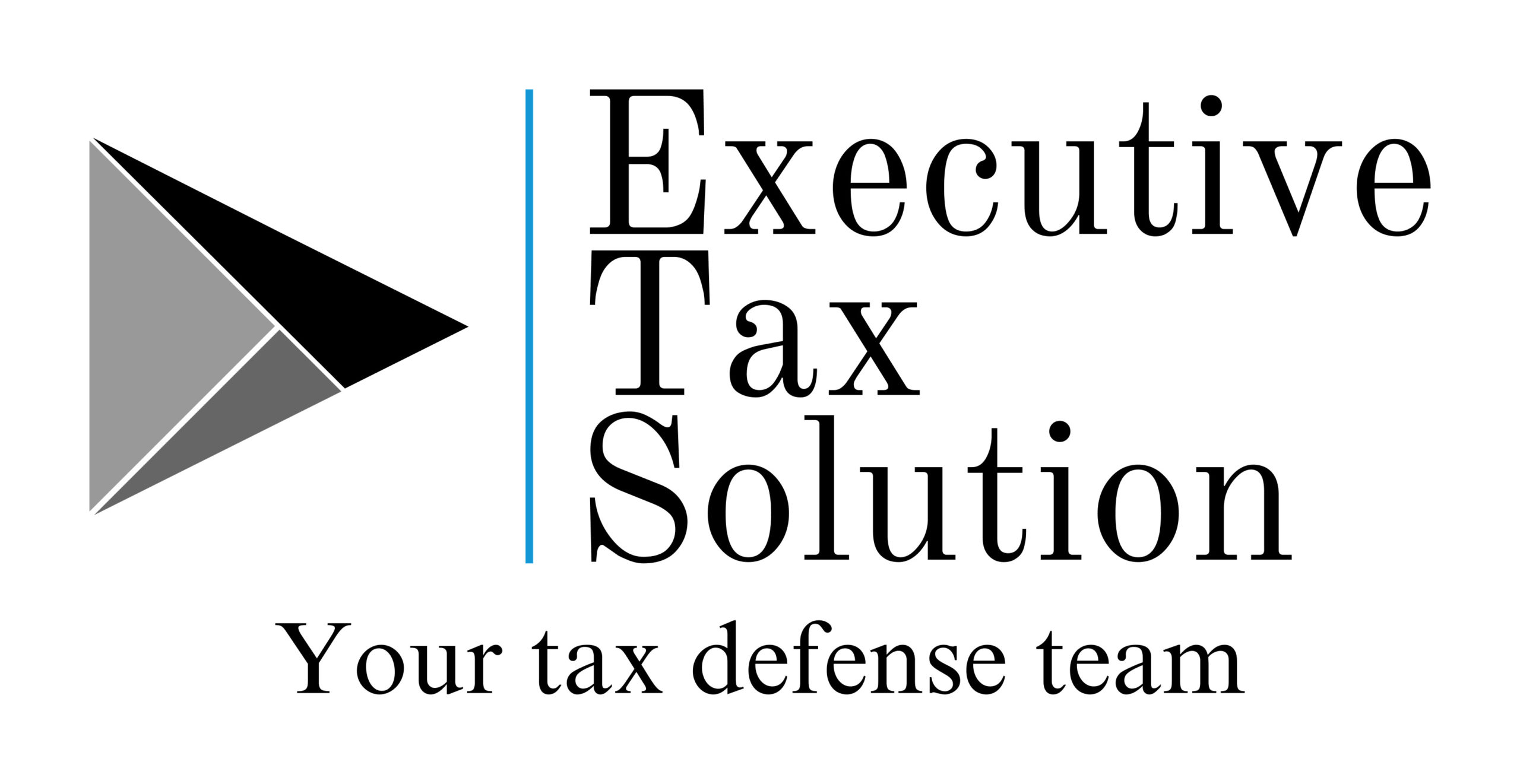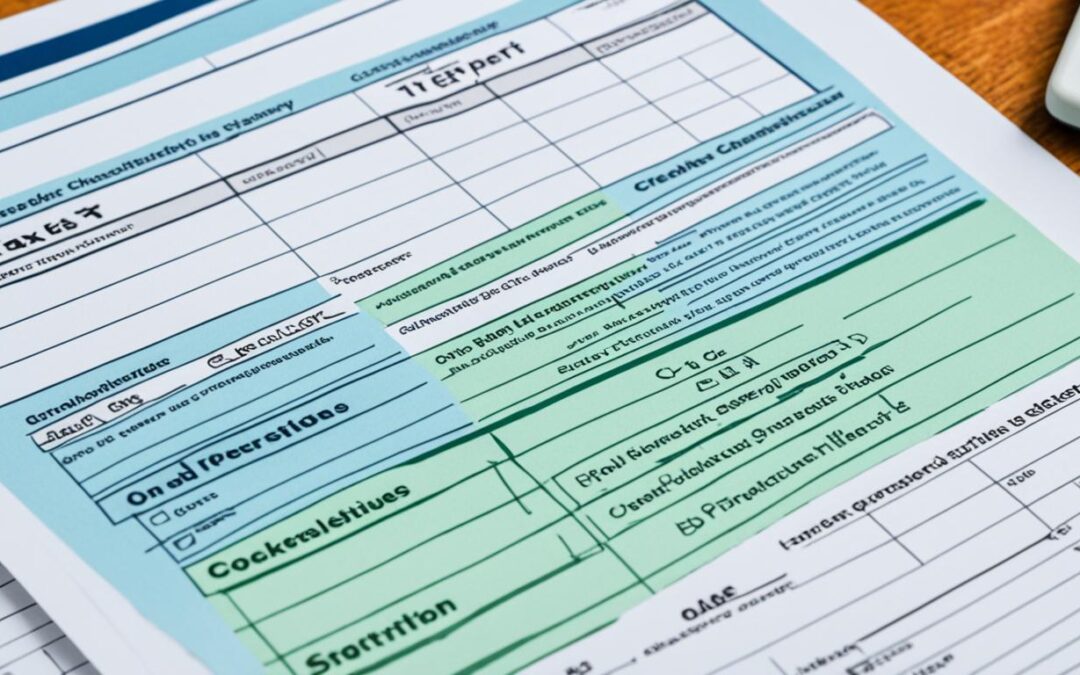Preparing your own income tax return can be a task that leaves you with more questions than answers. Like it or not, today’s tax laws are so complicated that filing a relatively simple tax return can be confusing. It is just too easy to overlook deductions and credits to which you are entitled, and often times little mistakes can turn into big IRS nightmares.
When you hire Executive Tax Solution to prepare your tax return, you can be assured that we will keep the IRS goons at bay. With our expertise and commitment to staying up-to-date with the latest tax laws and regulations, we ensure accurate advice and maximum tax savings for our clients.
Executive Tax Solution is proud to provide “White Glove” tax preparation services to individuals, families, and small businesses in Sachse and the surrounding areas. Call or text us at (469) 262-6525 to learn how we can assist you.
Key Takeaways:
- Preparing your own tax return can be confusing due to complex tax laws.
- Hiring a professional tax service like Executive Tax Solution can help you avoid mistakes and maximize your deductions and credits.
- Executive Tax Solution provides expert tax preparation services in Sachse and the surrounding areas.
- Our “White Glove” service ensures accurate advice and maximum tax savings for our clients.
- Contact us at (469) 262-6525 to experience a seamless tax preparation journey.
Gather Important Documents
As you begin your tax preparation process, it’s crucial to gather all the necessary documents. Having these documents organized and readily available will make the filing process smoother. Here are some key tax documents and forms that you’ll need to gather:
- Tax Forms: Collect all the relevant tax forms, such as W-2 and 1099 forms, from your employers, clients, or financial institutions.
- Income Statements: Retrieve your income statements, including your annual salary, bonuses, and any other sources of income. These statements will help you accurately report your earnings.
- Expense Records: Keep track of your expense records, such as business expenses, medical expenses, education expenses, and any other eligible deductions. Organizing these records will help maximize your tax savings.
- Receipts: Save receipts for any deductible expenses, such as business-related costs or charitable donations. These receipts serve as proof and support your claims.
By ensuring you have all these tax documents in one place, you’ll save time and reduce the chances of missing any crucial information.
In tax preparation, organization is key. Having your tax documents in order will help you file an accurate return and potentially maximize your tax savings.
Example of an Expense Record:
| Date | Expense Description | Amount |
|---|---|---|
| January 10, 2022 | Office Supplies | $50.00 |
| February 3, 2022 | Business Mileage | $100.00 |
| March 15, 2022 | Charitable Donation | $200.00 |
Review Tax Deductions and Credits
When it comes to maximizing your tax savings, reviewing potential tax deductions and credits is crucial. Taking advantage of available deductions and credits can help reduce your taxable income and potentially increase your refund. Let’s take a closer look at some key considerations.
Itemized Deductions vs. Standard Deduction
One important decision to make is whether to take itemized deductions or claim the standard deduction. Itemized deductions involve listing specific expenses, such as mortgage interest or medical expenses, which can be deducted from your taxable income. On the other hand, the standard deduction is a fixed amount that reduces your taxable income without the need for itemization.
To determine which option is best for you, consider the total amount of eligible expenses you can itemize. If your itemized deductions exceed the standard deduction, itemizing may be the way to go. However, if your itemized deductions are lower, it may make sense to claim the standard deduction.
Tax Credits
In addition to deductions, there are also various tax credits available that can directly reduce your tax liability. Two commonly utilized credits include the Child Tax Credit and Education Credits.
The Child Tax Credit provides a tax break for eligible parents or guardians with dependent children. This credit can significantly reduce your tax liability and even result in a refund in some cases.
Education credits, such as the American Opportunity Credit and the Lifetime Learning Credit, can help offset the costs of higher education expenses. These credits can be claimed by students or their parents, depending on individual circumstances.
Remember, it’s always wise to consult with a tax professional or use reliable tax software to ensure you’re eligible for and correctly claiming all applicable tax deductions and credits.
A Summary of Tax Deductions and Credits
| Deductions | Credits |
|---|---|
| Itemized Deductions | Child Tax Credit |
| Standard Deduction | Education Credits |
| Medical Expenses | |
| Mortgage Interest |
By carefully reviewing your potential tax deductions and credits, you can ensure you’re taking full advantage of available tax savings. This can help reduce your tax liability and potentially result in a larger refund or lower tax owed.
Stay tuned for the next section, where we’ll discuss how to organize your financial information effectively for tax preparation.
Organize Financial Information
When it comes to tax preparation, having your financial information organized is crucial. This includes financial records, bank statements, investment statements, loan documents, and property tax records. Keeping these documents readily accessible will help you accurately report your financial situation and ensure compliance with tax laws.
Start by gathering all your bank statements for the tax year. These statements provide a record of your income, withdrawals, and deposits, which can be vital for accurate reporting. If you have any investment accounts, gather investment statements as well. These documents detail your investment activities, including any dividends, capital gains, or losses.
Having well-organized financial records makes the tax preparation process much smoother and less stressful.
Next, locate your loan documents, such as mortgage statements or loan agreements. These documents are important for determining any deductible interest expenses. Additionally, gather your property tax records. These documents show the amount of property tax you’ve paid, which may be deductible on your tax return.
By organizing your financial information ahead of time, you’ll be better prepared to accurately report your income, deductions, and credits. It’s also essential for maintaining proper documentation in case of an IRS audit. Make sure to keep copies of these records, either electronically or in a safe physical location, for future reference.
At Executive Tax Solution, we understand the importance of having well-organized financial information for tax preparation. Our experienced team can help you navigate through your financial records, ensuring accuracy and maximizing your tax savings. Contact us today at (469) 262-6525 to learn more about our “White Glove” tax preparation services in Sachse and the surrounding areas.
Calculate Income and Expenses
When it comes to tax preparation, accurately calculating your income and expenses is crucial. This includes evaluating various sources of income, such as business income, rental income, and self-employment income. By carefully assessing these earnings, you can ensure that you report the correct figures to the IRS without overpaying or underpaying your taxes.
To calculate your income, take into account all revenue streams from your business, rental properties, or self-employment activities. This could include income from sales, services, or investments. Make sure to gather all the necessary financial documents that detail your earnings, such as profit and loss statements, income statements, and 1099-MISC forms.
On the other hand, calculating your expenses is equally important. Deductible expenses can significantly reduce your taxable income and help you maximize your tax savings. These expenses could include business-related costs, such as rent, utilities, office supplies, and advertising. As a rental property owner, you may be eligible to deduct expenses related to maintenance, repairs, property management, and mortgage interest.
Remember, it’s essential to maintain proper documentation and receipts for all your expenses. This ensures that you can substantiate your deductions in case of an audit or IRS inquiry. Keeping accurate records not only ensures compliance with tax laws but also provides an extra layer of protection and peace of mind.
“Accurately recording your income and expenses is the foundation of a successful tax return. It allows you to report your income transparently and claim the eligible deductions, resulting in a more accurate representation of your financial situation.”
– Executive Tax Solution
By diligently calculating your income and expenses, you can navigate the tax preparation process with confidence. Whether you’re a business owner, landlord, or self-employed professional, understanding the ins and outs of income and expense calculation ensures you don’t miss out on potential tax savings. For personalized assistance and expert tax advice, contact Executive Tax Solution at (469) 262-6525. Their “White Glove” service will streamline your tax preparation journey and help you optimize your financial outcomes.
| Income Calculation | Expense Calculation |
|---|---|
| Business income | Business-related costs |
| Rental income | Maintenance and repair expenses |
| Self-employment income | Office supplies and utilities |
| Advertising and marketing expenses |
Consider Retirement Contributions
When preparing for tax season, it’s important to review your retirement contributions for the tax year. Evaluating your options and understanding the potential tax advantages can help you make informed decisions about your retirement savings.
Consider contributing to retirement accounts such as traditional IRAs, Roth IRAs, 401(k) plans, or SEP IRAs. Each of these options has its own unique benefits and contribution limits, so it’s essential to familiarize yourself with the specifics.
Traditional IRA
A traditional IRA allows you to contribute pre-tax income, which can help reduce your taxable income for the year. The earnings in your traditional IRA grow tax-deferred until you start withdrawing during retirement. Keep in mind that there are contribution limits for traditional IRAs.
Roth IRA
A Roth IRA offers different tax advantages. You contribute after-tax income, meaning you won’t get an immediate tax deduction. However, the earnings in your Roth IRA grow tax-free, and qualified withdrawals during retirement are also tax-free. Like traditional IRAs, Roth IRAs have contribution limits that need to be considered.
401(k) Plans
If your employer offers a 401(k) plan, take advantage of it. You can contribute to your retirement savings through automatic payroll deductions. Contributions to a traditional 401(k) are made with pre-tax income, helping to lower your taxable income. However, a Roth 401(k) option is also available, allowing you to contribute after-tax income. Be sure to review the contribution limits and any employer matching contributions.
SEP IRA
If you’re self-employed or a small business owner, a Simplified Employee Pension (SEP) IRA can be a valuable retirement savings tool. Contributions to a SEP IRA are tax-deductible, and the earnings grow tax-deferred until withdrawal. It’s important to note the contribution limits for SEP IRAs.
Remember, retirement contributions not only help secure your future but may also provide potential tax advantages. Evaluate your options, review the contribution limits, and consult with a financial advisor to make confident decisions about your retirement savings.
| Retirement Account | Contribution Limits |
|---|---|
| Traditional IRA | $6,000 (or $7,000 if age 50 and older) |
| Roth IRA | $6,000 (or $7,000 if age 50 and older) |
| 401(k) Plans | $19,500 (or $26,000 if age 50 and older) |
| SEP IRA | 25% of compensation or $58,000 (whichever is less) |
Planning for retirement is a crucial part of your overall financial strategy. Take advantage of retirement contributions and the potential tax benefits they offer. Start building a nest egg to secure your financial future today.
Determine Filing Status
When it comes to filing your taxes, it’s important to determine your filing status as it can have a significant impact on your tax liability. Let’s take a look at the different filing statuses:
- Single: This filing status applies to individuals who are unmarried, divorced, or legally separated. If you don’t qualify for any other filing status, you’ll most likely file as single.
- Married Filing Jointly: If you’re married, you have the option to file jointly with your spouse. This filing status typically offers more tax benefits and lower tax rates.
- Married Filing Separately: If you’re married but want to keep your taxes separate from your spouse, you can choose to file separately. Keep in mind that this filing status may result in a higher tax liability.
- Head of Household: If you’re unmarried and responsible for at least 50% of the household expenses, you may qualify for the head of household filing status. This status typically offers greater tax advantages.
- Qualifying Widow(er): If your spouse passed away within the last two years and you have a dependent child, you may be eligible for the qualifying widow(er) filing status. This status allows you to file jointly and receive the same benefits as married filing jointly.
Consider your personal circumstances and choose the filing status that best reflects your situation. If you’re unsure which filing status to select, consult a tax professional or use tax software to help you determine the most advantageous option for your tax return.
Remember, choosing the correct filing status is crucial for accurately reporting your income and deductions to the IRS. If you’re uncertain about your filing status, Executive Tax Solution is here to assist you. Contact us at (469) 262-6525 and our knowledgeable team will guide you through the process.
File Tax Return or Extension
Once you have completed all the necessary steps in the tax preparation process, it’s time to file your tax return. The filing deadline is fast approaching, so it’s essential to submit your return on time to avoid penalties and interest charges. The IRS sets the filing deadline each year, typically corresponding to April 15th.
If, for any reason, you are unable to meet the filing deadline, don’t panic. There is an option to file for an extension using IRS Form 4868. This will grant you additional time to complete and submit your tax return accurately. Filing for an extension gives you an extra six months, moving the deadline to October 15th.
Filing an extension using IRS Form 4868 is relatively straightforward. You can electronically file the form through the IRS e-file system or submit a paper form by mail. Remember to provide the necessary information, such as your name, address, social security number, and an estimate of your tax liability for the year.
Keep in mind that while filing an extension gives you more time to complete your tax return, it does not extend the deadline for tax payment. If you anticipate owing taxes, it’s still important to make an estimated payment by the original filing due date to avoid potential penalties.
Be sure to consult with the experts at Executive Tax Solution if you need assistance with filing your tax return or requesting an extension. We can guide you through the process, ensuring accuracy and compliance with IRS regulations. Contact us at (469) 262-6525 to learn more about our “White Glove” tax preparation services in Sachse and the surrounding areas.

Double-Check Accuracy and Sign
Before submitting your tax return, it’s crucial to double-check its accuracy to ensure that all information, calculations, and deductions are correct. Mistakes or omissions can lead to penalties or missed opportunities for tax savings. Taking the time to review your tax return is an essential step in the tax preparation process.
Start by carefully examining all the information you’ve provided. Verify that your personal details, such as your name, Social Security number, and address, are accurate. Check that your income, including wages, dividends, and any other sources, are entered correctly. Ensure that you’ve included all necessary deductions and credits that you’re eligible for.
If you’ve used tax software or an online platform to prepare your return, take advantage of the built-in review features to identify any potential errors. These programs often include error-checking algorithms that can catch common mistakes or inconsistencies.
Once you’ve completed the accuracy check, it’s time to sign your tax return. The signing process may vary depending on whether you’re filing electronically or by paper. If you’re e-filing, you’ll typically sign your return electronically using an electronic signature, which serves as your legal authorization for the return.
If you’re filing a paper return, you’ll need to physically sign the return before sending it to the appropriate tax office. Remember to use a pen with blue or black ink and ensure that your signature is legible and matches the name printed on the return.
Signing your tax return is a critical step in the filing process, as an unsigned return may be considered incomplete and can lead to delays in processing. Be sure to follow the specific instructions provided by the IRS or your tax software to ensure compliance.
By double-checking the accuracy of your tax return and signing it appropriately, you can have peace of mind knowing that you’ve completed the tax preparation process thoroughly and accurately. Now you can submit your return with confidence, knowing that you’ve taken the necessary steps to fulfill your tax obligations correctly.
| Important Points | Tips for Accuracy Check and Signing |
|---|---|
| Accuracy Check |
|
| Electronic Signature |
|
| Paper Return Signature |
|
Remember, accuracy and attention to detail are vital when it comes to your tax return. Take the time to review all aspects of your return to avoid potential issues and maximize your tax benefits. Sign your return using the appropriate method, whether electronic or manual, to ensure the filing process is complete.
Pay Any Taxes Owed or Arrange Payment Plan
If you find yourself owing taxes, it’s important to prioritize timely payment. Ignoring your tax obligations can lead to penalties and further complications. To minimize the financial burden, consider the following options:
- Tax Payment in Full: If you have the means, paying the full amount owed upfront is the simplest way to satisfy your tax liability. This ensures that you avoid incurring additional interest or penalties.
- IRS Installment Agreement: If paying the full amount all at once isn’t feasible, the IRS offers installment agreements. This allows you to make monthly payments towards your tax debt. By contacting the IRS or utilizing their online platform, you can set up a personalized payment plan that fits your financial situation.
Arranging a payment plan with the IRS provides you with the flexibility to fulfill your tax obligations over time, without straining your budget. This approach helps you avoid any undue financial hardship while demonstrating your commitment to settling your tax debt.
If you require assistance navigating the IRS installment agreement process or exploring other tax payment options, don’t hesitate to reach out to Executive Tax Solution. We specialize in providing comprehensive tax services, including expert guidance on tax payment solutions.
Call or Text us at (469) 262-6525 to learn how we can assist you in effectively managing your tax payments and ensuring compliance with IRS regulations.
Keep Copies of Documents for Future Reference
Once you have successfully filed your tax return, it is essential to keep copies of all relevant documents for future reference. These documents include a copy of your tax return itself, supporting documents, and any correspondence with the IRS. Proper record retention is invaluable in case of future inquiries or audits.
By maintaining copies of these essential documents, you can easily access the information you need in the future. Whether you are applying for a loan, purchasing a new home, or undergoing an IRS audit, having the necessary documentation readily available will save you time, stress, and potential penalties.
One method to organize your tax records is to create a separate folder or digital folder for each tax year. Within this folder, store copies of your tax return, income statements, expense records, receipts, and any other applicable documents. For digital files, consider creating password-protected and encrypted backups to ensure the security of your sensitive information.
“Keeping copies of your tax documents is not only a best practice but also a legal requirement. The IRS recommends retaining tax records for a minimum of three years. However, it is advisable to keep them for at least seven years to be on the safe side.”
In addition to your tax documents, it is crucial to keep a record of any changes or updates you make to your tax return throughout the year. This includes documenting any major life events, such as births, deaths, marriages, or divo*rces, as well as any significant financial transactions.
Organizing and retaining copies of your tax documents demonstrates your commitment to maintaining accurate and transparent financial records. It provides you with peace of mind and serves as a safeguard against potential disputes or discrepancies. If you ever need to reference these documents, you’ll have them readily available without the need for extensive searching or additional stress.
Image:

Conclusion
Tax preparation can be a complex and time-consuming process, but with the assistance of Executive Tax Solution in Sachse, it becomes more manageable. By following this comprehensive checklist and leveraging the expertise of Executive Tax Solution, you can ensure a smooth and stress-free tax season.
Trust their “White Glove” service to maximize your tax savings and provide personalized support throughout the process. Executive Tax Solution is proud to provide “White Glove” tax preparation service to individuals, families, and small businesses in Sachse and the surrounding areas.
Call or Text us at (469) 262-6525 to learn how their team can assist you with all your tax preparation needs. Experience a seamless tax preparation journey with Executive Tax Solution.
FAQ
What documents do I need to gather for tax preparation?
You will need to gather W-2 and 1099 forms, income statements, expense records, and receipts.
What deductions and credits should I review for my taxes?
You should review potential deductions such as itemized deductions (e.g., mortgage interest, medical expenses) and tax credits (e.g., child tax credit, education credits).
How do I organize my financial information for tax preparation?
Organize your financial records, including bank statements, investment statements, loan documents, and property tax records.
How do I calculate my income and expenses for tax purposes?
Calculate your income and expenses, including business income, rental income, and self-employment income. Identify deductible expenses such as business-related costs or home office expenses.
What retirement contributions should I consider for tax purposes?
Consider options like traditional IRAs, Roth IRAs, 401(k) plans, or SEP IRAs. Evaluate contribution limits and potential tax advantages associated with retirement savings.
How do I determine my filing status for taxes?
Determine your filing status based on options such as single, married filing jointly, married filing separately, head of household, or qualifying widow(er).
When should I file my tax return, and what if I can’t meet the deadline?
File your tax return by the filing deadline. If you can’t meet the deadline, consider filing an extension using IRS Form 4868 to grant additional time.
How do I double-check the accuracy of my tax return?
Review all the information, calculations, and deductions for any errors or omissions before submitting your tax return. Once verified, sign the return electronically or manually.
How do I pay any taxes owed?
Ensure timely payment if you owe taxes. You can pay the amount due in full or explore IRS payment options like installment agreements to arrange a payment plan.
What should I do after filing my tax return?
Make copies of all relevant documents and keep them for future reference. This includes a copy of the tax return, supporting documents, and any correspondence with the IRS.
How can Executive Tax Solution in Sachse assist with tax preparation?
Executive Tax Solution provides “White Glove” tax preparation services. Contact them at (469) 262-6525 to learn how they can help you through the tax preparation process.
Source Links
- https://taxsupportservices.com/online-but-local-executive-tax-solution-tax-preparation-checklist-in-sachse/
- https://taxsupportservices.com/online-but-local-executive-tax-solution-checklist-for-tax-preparation-in-sachse/
- https://www.executivetaxsolution.com/checklist-tax-preparation-in-sachse-and-sachse-75048-call-executive-tax-solution-469-262-6525/

